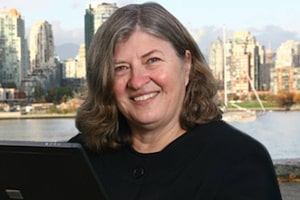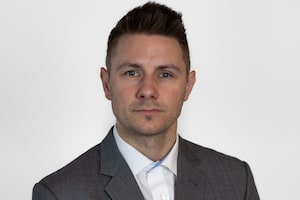Ken Sim, left, who has been elected Mayor of Vancouver defeating Kennedy Stewart, right, stand together before a town hall in Vancouver, on September 7, 2022.DARRYL DYCK/The Canadian Press
Municipal elections saw major shifts across Canada’s West Coast on Saturday after voters in B.C. looking for change swept new mayors into office in Vancouver, Surrey, Kelowna, Kamloops, Penticton and Victoria.
Businessman Ken Sim and all seven of his ABC party candidates won in Vancouver, a decisive result that indicated a majority of voters had grown dissatisfied with a fractured council that seemed to lurch from issue to issue without a clear direction.
After his party’s candidates danced to the Jackson Five’s hit song ABC, Mr. Sim strode on stage to hug his colleagues before opening with a joke about the wait from his narrow loss in 2018 being the “longest job interview ever.”
He noted that his party only formed 500 days ago and now is the largest municipal outfit in the province.
Mr. Sim is the first person of Chinese descent to be elected to the city’s highest office, and in his victory speech he marveled how he had ascended to the position 135 years after Chinese immigrants were forced to pay a racist head tax after helping build the Trans-Canada railroad.
He thanked his parents, now deceased, for leaving a comfortable life in Hong Kong in 1967 with three kids and “3,200 bucks in their hand” to come to Vancouver, where he and another sibling were born.
“The history of this moment isn’t lost on me,” said Mr. Sim, who also shouted out a long list of Chinese-Canadian politicians who were elected to city hall before him.
During his concession speech, Kennedy Stewart, a former NDP MP, touted his record of shifting Vancouver’s priorities to building rentals from building high-priced condos.
‘I’m just really proud of the work that everybody’s done,” he said.
“These last four years have been pretty tough but I do think we got the city through pretty hard times.”
Mr. Stewart and his council, a loose coalition of left-wing and Green candidates, passed many measures that became controversial talking points in the election campaign, like a police-budget freeze, an overdose-prevention site in the heart of the city’s downtown condos, and promises to sue oil companies for damage brought about by fossil fuels.
Mr. Sim’s ABC party also appeared to hold a majority of city councilors, allowing them to pursue an agenda with much less guesswork as to where the votes will land. In his speech, Mr. Sim thanked Mr. Stewart for shepherding the city through the pandemic and he congratulated the councilors from other parties and pledged to work with them.
Raucous cheers erupted through the night at Mr. Sim’s election headquarters. Supporters included Chip Wilson, the billionaire Lululemon founder and real estate investor who has been critical of the current mayor’s approach to the homelessness crisis.
The Vancouver campaign centred around two major issues: how much new housing to build and where it should go. The second was what to do about Vancouver’s tangled knot of homelessness, encampments on public streets and parks, a wave of stranger assaults, mental illness, and illicit-drug poisoning.
The two mayoral rivals proposed housing approaches that were not that far apart from each other – build a lot, stick with the city’s current Broadway Plan and Vancouver Plan, try to do more. As well, neither of the two proposed a swift clearing of tent camps or any quick-fix populist approaches to other issues.
Mr. Sim pledged to hire 100 new police officers with 100 psychiatric nurses to provide a combined policing and health approach for calls from people dealing with psychosis. Mr. Stewart proposed hiring 25 “counsellors” who would be on the streets helping homeless people or those going through a mental health breakdown. As well, under his proposal, the city’s 311 helpline operators would be trained to take calls from the public and dispatch help for those kinds of situations.
Mr. Sim’s campaign team, headed by the man who also spearheaded B.C. Liberal leader Kevin Falcon’s campaign, Kareem Allam, focused heavily on disgruntled homeowners in the city who felt like not enough was being done about public disorder. They particularly focused on Chinese and South Asian homeowners who dominate in much of south Vancouver.
The rookie mayor, a businessman with a bagel chain and an on-call nursing franchise, has never sat on council and did not make any appearances there in the last four years, even though he started campaigning again almost immediately after the 2018 election where he lost to Mr. Stewart.
Mr. Stewart and his campaign team had to work hard to hang on to left-leaning voters who had a smorgasbord of options. Several NDP politicians, including would-be provincial leader David Eby, came out with endorsements for him in the final week.
Mr. Sim’s team got the endorsement of the Vancouver Police Union, while Mr. Stewart and several left-green-progressive council candidates got an endorsement from the city’s firefighters’ union.
In Surrey, councillor Brenda Locke, who pledged to scrap the creation of a municipal police force and return to a contract with the RCMP, defeated the embattled incumbent mayor.
Ms. Locke was elected four years ago as a member of current Mayor Doug McCallum’s Safe Surrey Coalition, but she quit soon after being elected and became a vocal opponent.
“Surrey, you sure did have something to say and you said it tonight. You sent a very big message to Doug,” Ms. Locke said. “We need to keep the Surrey RCMP right here in Surrey.”
Ms. Lock has previously criticized the new force for giving its officers the highest pay in Canada, adding about 150 of them are currently working in the city, shadowing the 643 Mounties still patrolling.
Ms. Locke had initially supported Mr. McCallum’s bid to replace the Mounties when she sat as a councillor, but said she split from his municipal party after decisions about the creation of the new force occurred without input from her and her colleagues or the public.
Other candidates for mayor in Surrey had pledged to study the transition or to reveal more of the numbers.
Mr. McCallum was elected on a law-and-order platform in 2018 and now awaits trial on a public mischief charge related to a scuffle with political activists in a parking lot. He was running as mayor for the fifth time since 1996.
He gave a brief concession speech saying he respects the choice of voters.
“I’ve worked hard for the city for many years and maybe it’s time for me to maybe put my feet up a little bit and enjoy life,” he said.
With a file from The Canadian Press.
 Frances Bula
Frances Bula Mike Hager
Mike Hager